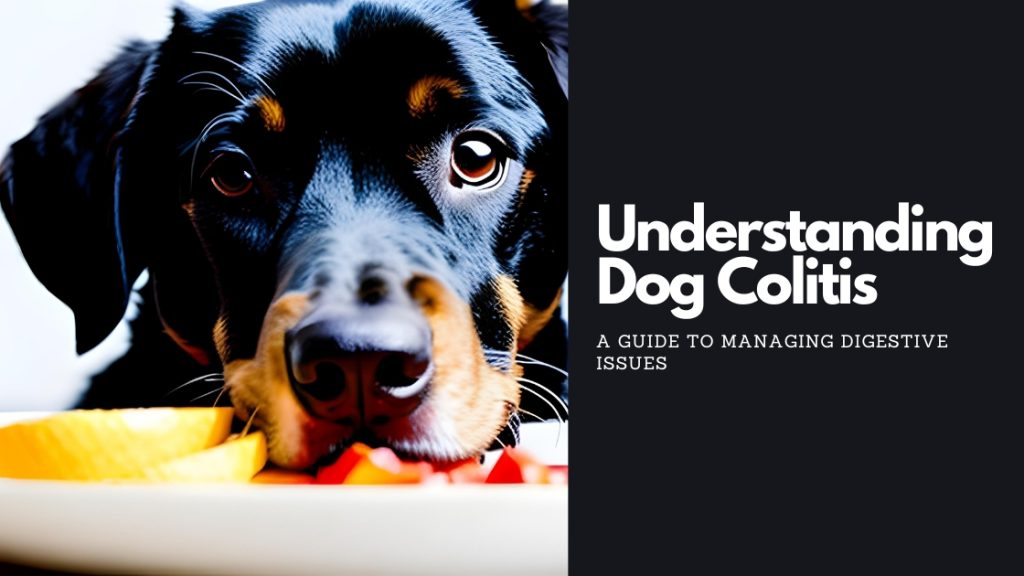As dog parents, we always strive to keep our furry friends healthy and happy. However, sometimes they may experience digestive issues like colitis, which can be concerning.
In this article, we’ll shed light on colitis, its causes, and how to manage it through proper nutrition.
Let’s explore how we can help our beloved pets when they’re facing intestinal troubles.
What is Colitis?
Colitis refers to inflammation of the colon or large intestine in dogs.
It can manifest as symptoms like slimy and soft stools with mucus, occasional bloodstains, and irregular bowel movements.
Stress and irritable bowel syndrome are common triggers for colitis in dogs. While it can be distressing, with proper care and nutrition, we can help our dogs recover.
The Role of Nutrition:
Nutrition plays a vital role in managing digestive issues in dogs, including colitis
- One Meal a Day: When dogs experience digestive or skin issues, transitioning them to one meal a day can be beneficial. This approach allows their intestines to rest and recover, giving the body a chance to heal naturally.
- Chicken: A Gentle Meal Option: During episodes of colitis, it’s best to stick to a simple, easily digestible protein source like chicken. Other food items such as rice, oats, and vegetables can potentially create gas and stress the digestive system. By offering only chicken as the main meal, we minimize the chances of further discomfort.
- The Healing Power of Autophagy: Feeding dogs one meal triggers a process called autophagy, which promotes healing and regeneration in the body. Just like when they fast when unwell, providing one nutritious meal a day can support their recovery.
- Avoiding Fruits: While fruits are rich in nutrients, they also contain sugar. In cases of colitis or digestive issues, it is advisable to limit sugar intake. Fruits like apples, mangoes, and bananas, which are often fed to dogs as treats, can contribute to increased sugar levels in the intestines. Limiting or eliminating fruit consumption can aid in reducing inflammation and maintaining a healthy digestive system.
- Understanding Sugar’s Impact: High carbohydrate foods, including rice, can elevate sugar levels in the intestines. When sugar levels increase, it can lead to an overgrowth of harmful bacteria. The ensuing battle between immune cells and bacteria causes inflammation, resulting in symptoms like those seen in colitis.
- The Importance of Rest: Resting the digestive system is crucial when a dog is experiencing colitis. By providing a minimal meal of chicken and abstaining from other potential irritants, we give the intestines a break and create an environment conducive to healing.
Conclusion:
Dealing with colitis or any digestive issue in dogs can be challenging, but with proper care and nutrition, we can help our furry companions recover. Understanding the importance of rest and providing a minimal, easily digestible meal, such as chicken, can be beneficial. Additionally, limiting sugar intake by avoiding fruits and high-carbohydrate foods like rice can help reduce inflammation and maintain a healthy gut.
As responsible pet parents, we should pay attention to our dogs’ health, consult with veterinarians whenever necessary, and follow a balanced and nutritious diet to ensure their well-being. Remember, a happy and healthy dog starts with a well-nourished digestive system.



